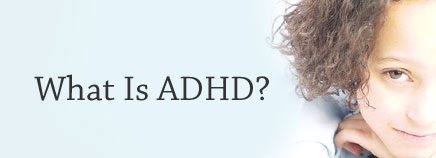
I’ve read at timesonline about ADHD. Do you know ADHD ? ADHD is short form of Adult Attention Deficit Hyperactivity Disorder. Their symptoms ain’t easy to detect and most patient don’t know they effect with this sickness. Those who get this disorder will have problem to concentrate because their brain ability become low. People get this disease will easily bored but have an ability to become more hyper focus.

What you must know about ADHD
1. ADHD can infect anyone without any symptoms in childhood.
2. 3 – 9 % children display ADHD symptoms. 65 % will show the symptoms in their adulthood.
3. There no explaination about cause of ADHD.
There are some behavior changes that effect the patient such as anxiety, low self-esteem, can’t control anger, can’t organize lifestyle, chronic boredom, depression and problem in communication.
Risk of ADHD if:
• Children who exposed to toxins during child
• Your mother smoked, drank alcohol or used drugs during pregnancy
• Genetic with ADHD person
• Born prematurelyIf the symptoms of ADD/ADHD are getting in your life, get help from professional trainer.
Treatment
There are some drugs such as amphetamine-based used to treat but the best way is meditation, therapy or life coaching. There’s no really treatment can cure this disease but with right treatment, patient can life happily.
How is ADHD treated
Currently the available treatment focus on reducing the symptoms of ADHD and improving functioning. The treatments include medication, various types of psychotherapy, education or training or a combination of treatments.
Medication
The common medication used called a ‘stimulant’. It could calming effect on children with ADHD. many types of stimulant medications are available. Medication also may improve physical coordination.
The medication not all works. Some of the medicine work and might not work for another. Children migh have side effects with a certain medication while another child may not. Before taking medication the children need to be monitored closely and carefully by caregivers and doctors.
Stimulant medications for ADHD include:
Methylphenidate (Ritalin, Concerta, Daytrana)
Dextroamphetamine-amphetamine (Adderall)
Dextroamphetamine (Dexedrine, Dextrostat)
Stimulant medication side effects
The most common side effects of stimulant medications in children include:
Decreased appetite
Weight loss
Problems sleeping
Irritability as the effect of the medication tapers offNonstimulant medication
Atomoxetine is generally given to children with ADHD when stimulant medications aren’t effective or cause side effects. In addition to reducing ADHD symptoms, atomoxetine may also reduce anxiety. Given one or two times a day, atomoxetine side effects can include nausea and sedation. It can also cause reduced appetite and weight loss.Nonstimulant medication side effects
Atomoxetine has been linked to rare side effects that include liver problems. If your child is taking atomoxetine and develops yellow skin (jaundice), dark-colored urine or unexplained flu symptoms, contact the doctor right away.
How can parents help ADHD patient
Parent and teachers need to guide children with ADHD to reach their full potential and to succeed in their life. Mental health professionals can educate parents about ADHD and how it impacts a family. They also will help the child and his or her parents develop new skills, attitudes and ways of relating to each other.
Parenting skills training helps parents to change a child’s behavior. Parents are also encouraged to share a pleasant or relaxing activity with the child, to notice and point out what the child does well and praise the child’s strengths and abilities.
Reference :- Adult ADHD Resource website , MayoClinic, Psycom.net

Leave a Reply